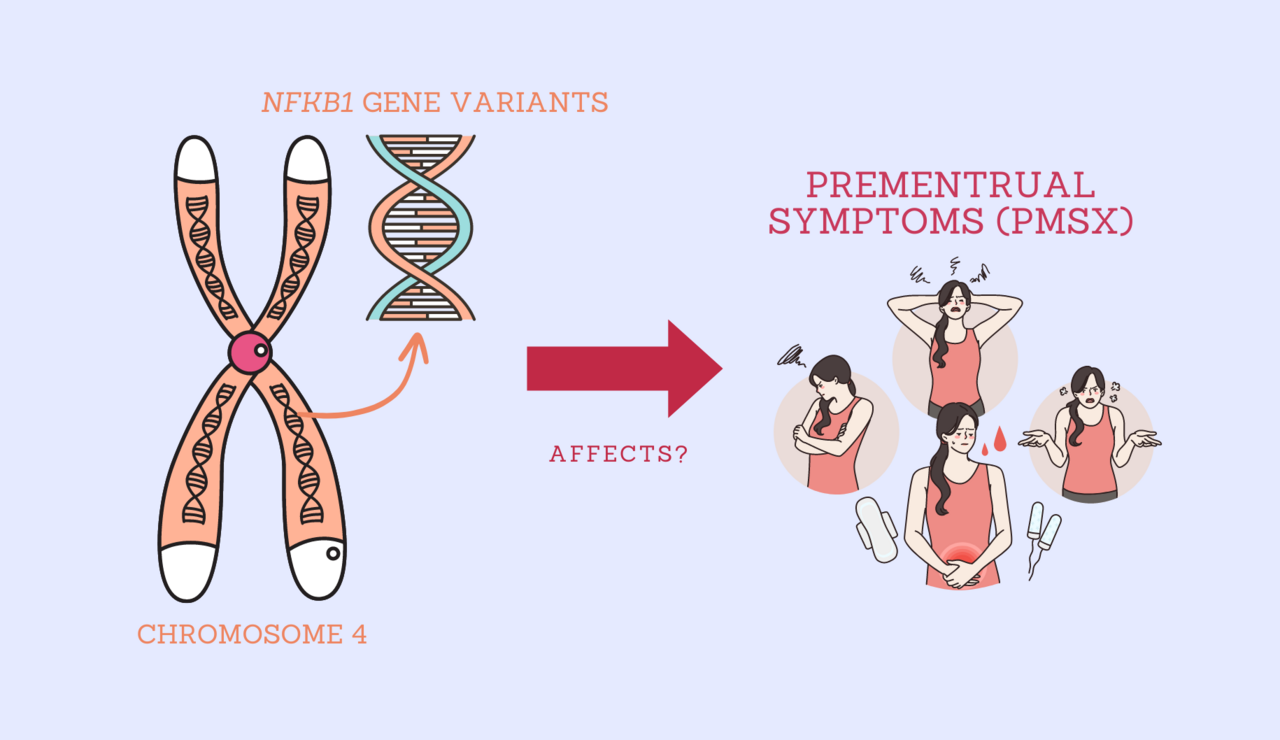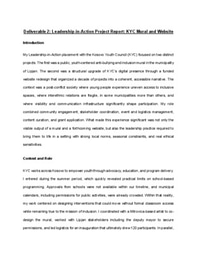Project Outline: Associations between Polymorphisms in the NFKB1 Gene and Premenstrual Symptoms

Supervisor: Dr. Ahmed El-Sohemy, Department of Nutritional Sciences, University of Toronto.
Project background
While the prevalence of premenstrual symptoms (PMSx) is high and the impact significant, the causes of PMSx, ranging from genetic to lifestyle factors, remain poorly understood. Treatments like anti-inflammatory agents offer some relief, highlighting the potential role of inflammation in exacerbating these symptoms. Research has linked several hormones and inflammatory markers, such as interleukins and TNF-α, to PMSx severity.
The NF-κB pathway, essential in immune responses and inflammation, involves complex interactions of multiple subunits that regulate gene expression related to inflammation. The NFKB1 gene, encoding the p105 protein, which is processed into the p50 subunit, is central in this pathway. This subunit can act as both a repressor and an activator of inflammatory genes, influenced by its pairing with other subunits. Dysregulation of this pathway is implicated in various inflammatory conditions, and polymorphisms in the NFKB1 gene have been associated with different inflammatory diseases, suggesting its potential role in the severity and occurrence of PMSx.
Research Question and Objectives
Research Question:
Do the 18 SNPs in the NFKB1 gene (rs11722146, rs13117745, rs1599961, rs1609798, rs230511, rs230547, rs3774932, rs3774934, rs3774956, rs3774968, rs4648006, rs4648022, rs4648090, rs4648095, rs4648110, rs4648127, rs4698863, and rs7674640) contribute to the severity of 15 premenstrual symptoms in a multi-ethnic cohort of young healthy women?
Research Objectives:
- The primary aim of this research is to illuminate the genetic foundations of premenstrual symptoms, contributing significantly to our understanding of women's menstrual health and potentially leading to personalized treatments for PMS. The implications of this work are broad, influencing public health strategies, drug treatments, education, clinical practices, and health policies worldwide.
- Secondary research objectives include enhancing my understanding of academic research processes, improving my analytical skills, and honing my ability to communicate complex ideas effectively. Through this program, I aim to deepen my research expertise and make meaningful contributions to my field.
Methodology
This research aims to determine if 18 single nucleotide polymorphisms (SNPs) in the NFKB1 gene are linked to 15 common premenstrual symptoms in a diverse cohort of healthy young women. Utilizing data from the Toronto Nutrigenomics and Health (TNH) study—a cross-sectional study of 1,640 young adults aged 20-29—this research will focus on a subset of women, and will control for other factors known to influence PMSx, including the use of hormonal contraceptives, smoking etc. The study employs RStudio to carry out a logistic regression which seeks to identify associations between the NFKB1 gene variants and the severity of PMSx. Initial assessments will focus on Caucasians and East Asians to explore ethnic differences within the cohort. Significant associations, set at p-values of 0.05, will adjust for age, BMI, ethnicity, and physical activity to isolate the effect of the NFKB1 gene.
Potential Impact
The key anticipated impact of this research is to enhance the understanding of PMSx origins and refine diagnosis through identifying genetic markers that correlate with symptom severity. The identification of specific polymorphisms may enable personalized, targeted anti-inflammatory treatments, improving efficacy and minimizing side effects. The findings could also influence public health strategies and policies by enhancing healthcare support for women with severe PMS.
I look forward to hearing your thoughts and feedback on my research, and answering any questions you may have!




Please sign in
If you are a registered user on Laidlaw Scholars Network, please sign in